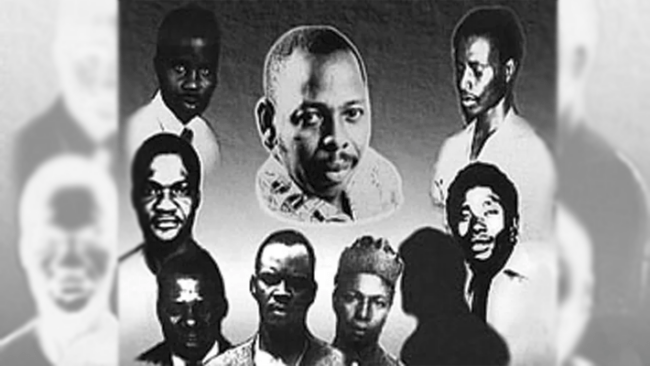Activists Call For Justice As President Tinubu Honours Memory Of Ken Saro-Wiwa And Ogoni 8

On November 11, 2024, President Bola Tinubu paid tribute to Ken Saro-Wiwa and eight other Ogoni leaders executed in 1995 for their environmental activism. In a statement released through his media aide, Tinubu acknowledged their sacrifices and pledged to pursue peace, justice, and sustainable development for the Niger Delta.
The President admitted that the leaders’ efforts to protect their environment from harmful oil exploration were met with severe repression, culminating in their tragic execution by the military regime of General Sani Abacha. This marked the first acknowledgment of the injustice of their deaths by a Nigerian government since the incident.
Civil Society Responds
Kome Odhomor, Media Lead of the Health of Mother Earth Foundation (HOMEF), welcomed the acknowledgment but called for tangible actions to address the long-standing ecological and social injustices faced by the Ogoni people. Odhomor emphasized the need for the complete exoneration of Saro-Wiwa and the Ogoni 8, asserting that their conviction was the result of a biased and manipulated judicial process orchestrated to suppress their calls for environmental justice.
“The executions were a mockery of justice, carried out to silence legitimate demands for resource and ecological fairness,” Odhomor stated.
Background on the Ogoni Struggle
The Ogoni leaders, including Saro-Wiwa, were pivotal in mobilising their community under the Movement for the Survival of the Ogoni People (MOSOP). They championed demands for environmental cleanup, fair compensation, and sustainable development in the Ogoni Bill of Rights, which spotlighted the devastation caused by oil exploration by Shell. Their activism led to Shell’s expulsion from Ogoniland in 1993 but also triggered widespread militarization, violence, and ultimately, their execution.
Despite international outrage over the 1995 executions, key demands of the Ogoni people remain unmet. The Nigerian government has yet to clean up decades-old oil pollution or implement the full recommendations of the United Nations Environmental Programme (UNEP). Instead, efforts to resume oil extraction in Ogoniland have raised concerns among activists.“How can the government plan to restart oil activities when the existing environmental damage has not been addressed?” Odhomor questioned.Activists also highlighted the detention of the Ken Saro-Wiwa Memorial Bus by the Nigeria Customs Service since 2015, despite court orders for its release. They viewed this as symbolic of the government’s disregard for reconciliation and closure.
Demands for Justice and Action
In a statement, endorsed by several civil society organisations, including Health of Mother Earth Foundation, We the People, Corporate Accountability and Popular Participation Africa, People’s Advancement Centre, Kabetkeche Women Development Resource Centre and Lekeh Development Foundation, Odhomor outlined their recommendations as follows:
1. Halt oil extraction in Ogoniland until pollution is addressed and the environment remediated.
2. Decommission aging oil infrastructure and prioritise the restoration of livelihoods.
3. Release the Ken Saro-Wiwa Memorial Bus as a step toward reconciliation.
4. Exonerate Ken Saro-Wiwa and the Ogoni 8 to provide justice and closure to the Ogoni people.
“The Ogoni case is a lesson in the devastating consequences of environmental negligence. It is time for the government to prioritise ecological and social justice,” the statement concluded, underscoring the urgency of addressing the decades-long grievances of the Ogoni people and preventing further ecological disasters across the Niger Delta.

